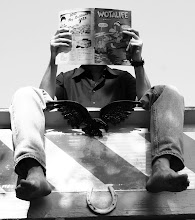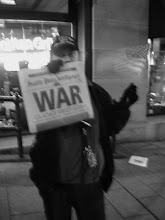
Dear Editor,
Regarding the expulsion of Donald Duck from the comics pages of the Butler Eagle: We have waited long enough! Appease the silent majority by returning Donald to his rightful place. The city of Butler has not been the same since old Don was evicted, an ill wind blows down Main Street, hear its plea.
The Growing Numbers of F.O.W.L., Butler Chapter
Catching my breath, I drop the letter into the dark bin, listening for its envelope to hit bottom. I’ve just pedaled some six miles to this particular street corner, one adjacent to a huddle of miserable-looking, red-brick buildings situated at the north east end of Butler, a tired precinct of “spit an’ comb” barbers, moribund five & dimes, and deer skinning boutiques. Pushing away from the mailbox, casting a steady eye about me, I reassure myself I haven’t been seen. Reaching the curb, the front wheel of my bicycle hitting the road with a pleasing thud, I begin to head for home, my mission accomplished.
It is late summer, 1990. I am twenty six years old, the sole member of a secret terroristic organization known as Friends Of the Webbed Legend, an affiliation that places me alongside such notorious agencies of change as The Weathermen and The Black Panther Party, the only difference being that F.O.W.L. is dedicated to reinstating change to the comics page of a daily regional newspaper, not the social and political climate of the western world. That paper, The Butler Eagle, is still helmed by the editor who, some ten years earlier, published, and subsequently possessed, my own comic strip, Flip Rhodun. F.O.W.L. is, in part, my revenge on this philanthropic thief, my method of toying with the sacred structure of provincial journalism.
I’d begun some two months prior, penning my first letter of protest and outrage, mere days after Donald Duck had been replaced by Geech, a generally uninspired look at small town life created by the late Jerry Bittle. The Duck strip was an anonymous vehicle of the Disney Corporation, the sort of capitalist beacon a militant cabal like F.O.W.L. should have stood in defiance of, and yet, here I was, championing this faceless cartoon, claiming to admire its classic simplicity, demanding its return through a series of letters to the editor, each increasing the urgency of the matter, issued with a more strident tone.
It is patently obvious that Donald Duck has become a surrogate for Flip Rhodun. It is the rising face of a decade-old grievance, a grudge that will take me to rare extremes as I attempt to spare the bird the axe.
At first, I simply sign my communications with the F.O.W.L. acronym, claiming no allegiance, or affiliation, with Disney. At least one a week appears in print. Soon, desiring to more deeply insert my fabrication into the workings of the paper and its community, I begin to craft responses to my own letters, crediting them to equally make-believe inhabitants of Butler, and the greater Pittsburgh area, colorful locals like Dom and Tam Diggs, married truck drivers who profess their love for the famous duck, even asking to join F.O.W.L.
To authenticate this expanding skullduggery, I bicycle some twenty-odd miles, posting the Diggs’ letters where the postmark will stand scrutiny. It isn’t long before I’m pedaling about the county, dropping my “feathered missives” with increasing frequency, spreading my editorial terror. Many never make it to print, but each is an integral chapter in my story, helping to realize the world I am creating.
As F.O.W.L.’s demands become more urgent, now appearing on “official” photo-copied stationary, letters from actual supporters begin to crop up, more than one following the cryptic literary bent of my own, taking an even more strident tone, threatening to cancel their subscriptions and boycott the paper.
I have quickly become Dr. Frankenstein, F.O.W.L. my duck-shaped monster. The only way to stop what I have created, it seems, is for the editor to capitulate and return the sailor-suited drake. This would have been a perfect end to my tale, but, alas, it is not to be. Donald, like Flip before him, is never again to grace the pages of the Eagle. The Friends Of the Webbed Legend fails to meet its sworn objective.
Eventually, I cease the letter-writing, my sympathizers following suit. The ink-stained campaign of public influence quickly fades from view, even as a very different crusade of coercion captures the attention of the country, George Herbert Bush pointing to his vinegary lips, American tanks rolling into Saudi Arabia, Saddam Hussein testing his former benefactor’s will by annexing the oil depot known as Kuwait.
As the vicious heart of a nation reveals itself, grandmothers calling for blood, a small city in Western Pennsylvania simultaneously succumbs to the iron-fisted rule of a newspaper tyrant, an editor who sees fit to banish a webbed legend from its cultural diet.
Wisely recognizing that my days as a comic strip master of terror are over, I bid the rascally fowl adieu, unaware that my little exercise in media manipulation will one day come in handy, when I am to venture fresh escapades of literary deception, letting my mind run in wild new places, but that is yet another story, for another time.





























































